CEB Newsletter
January 2025

Lent term begins
Head of Department Clemens Kaminski welcomes staff and students back for the new term, and puts forward his thoughts on what awaits CEB in 2025
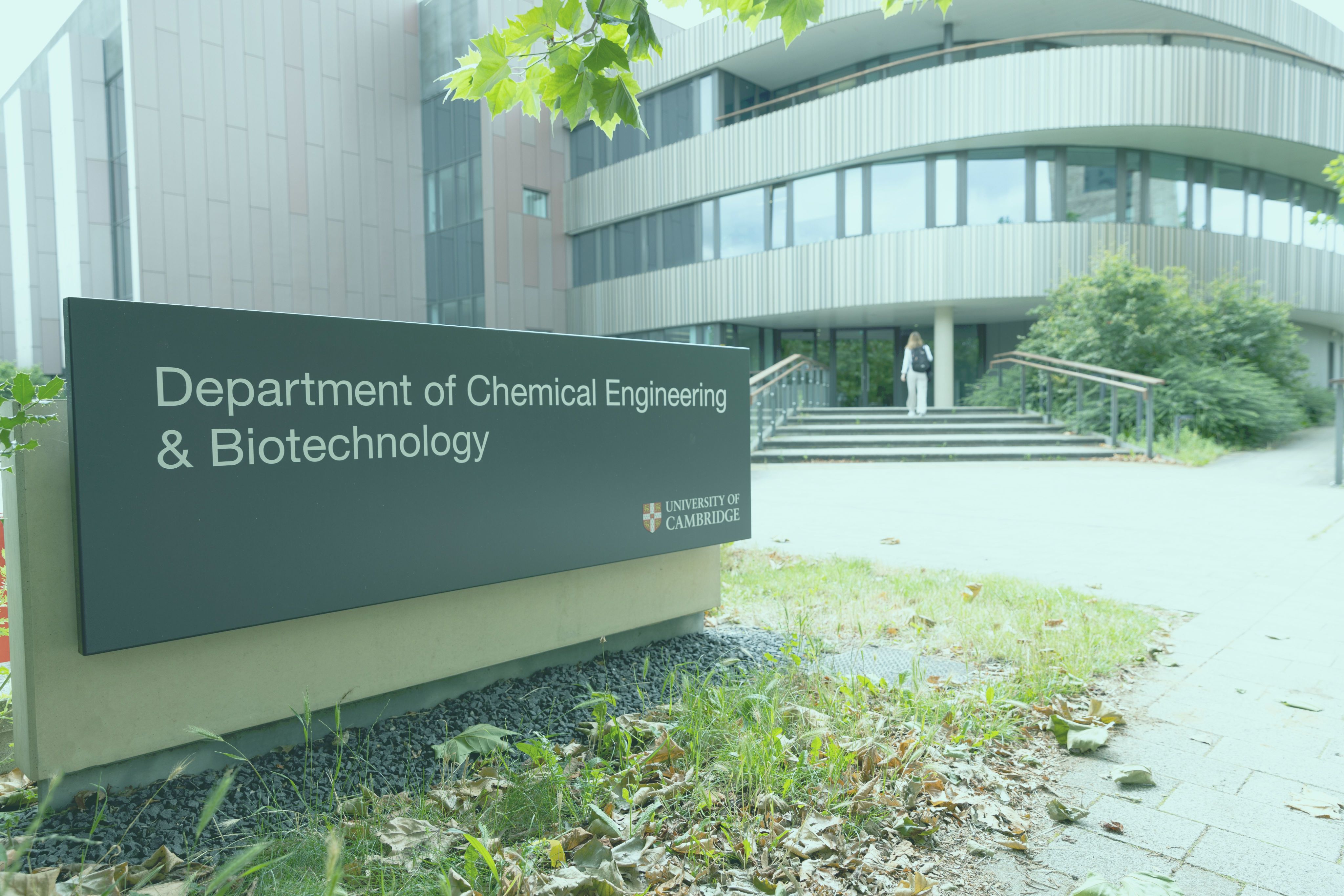
Welcome back for 2025
Dear all,
I hope you had a restful festive season, spending time with family and friends, and that you feel recharged for another busy year ahead.
I spent Christmas in my hometown in Austria, surrounded by bitter cold and snow – a picture-perfect winter wonderland. Yet, beneath the beauty of the snowscapes lies a stark reminder of climate change. Many ski resorts are closing due to insufficient snowfall, and the Pizol glacier, just across the Swiss border where I first learned to ski, was the first in the Alps to be officially declared extinct. Sadly, others have followed.
These realities underscore the importance of the work we do. I am inspired by the world-leading, prize-winning research happening in our department on energy transition technologies – photovoltaics, sustainable materials and processes, hydrogen, and more. Last year, we celebrated two ERC grant winners, one of the highest acknowledgements of research leadership, and significant prizes were awarded to CEB researchers for contributions enabling the energy transition.
"I’m encouraged by the rising awareness and enthusiasm among the younger generation."
While we’ve had a strong year for research income, we are operating in increasingly challenging times. Like all universities, we face growing financial pressures and must achieve 5% savings in real terms over the coming years. These constraints affect our ability to make new appointments, seize strategic opportunities, and fund the best ideas.
The broader context isn’t easy either, with climate change slipping down the agenda for many policymakers. However, I’m encouraged by the rising awareness and enthusiasm among the younger generation. This is reflected in the record-breaking applications to CEB this year, and growing undergraduate numbers. In a time when STEM enrolments are declining nationally, it’s heartening to see such strong interest in our programmes. The systems-thinking skills we teach are clearly recognised as crucial for tackling the complex challenges ahead.
Your contributions are essential to ensuring we maintain our leadership and provide the best possible environment for our students and researchers. Thank you for all your dedication and hard work.
Wishing you all a happy and successful 2025.
Warmest regards,
Clemens
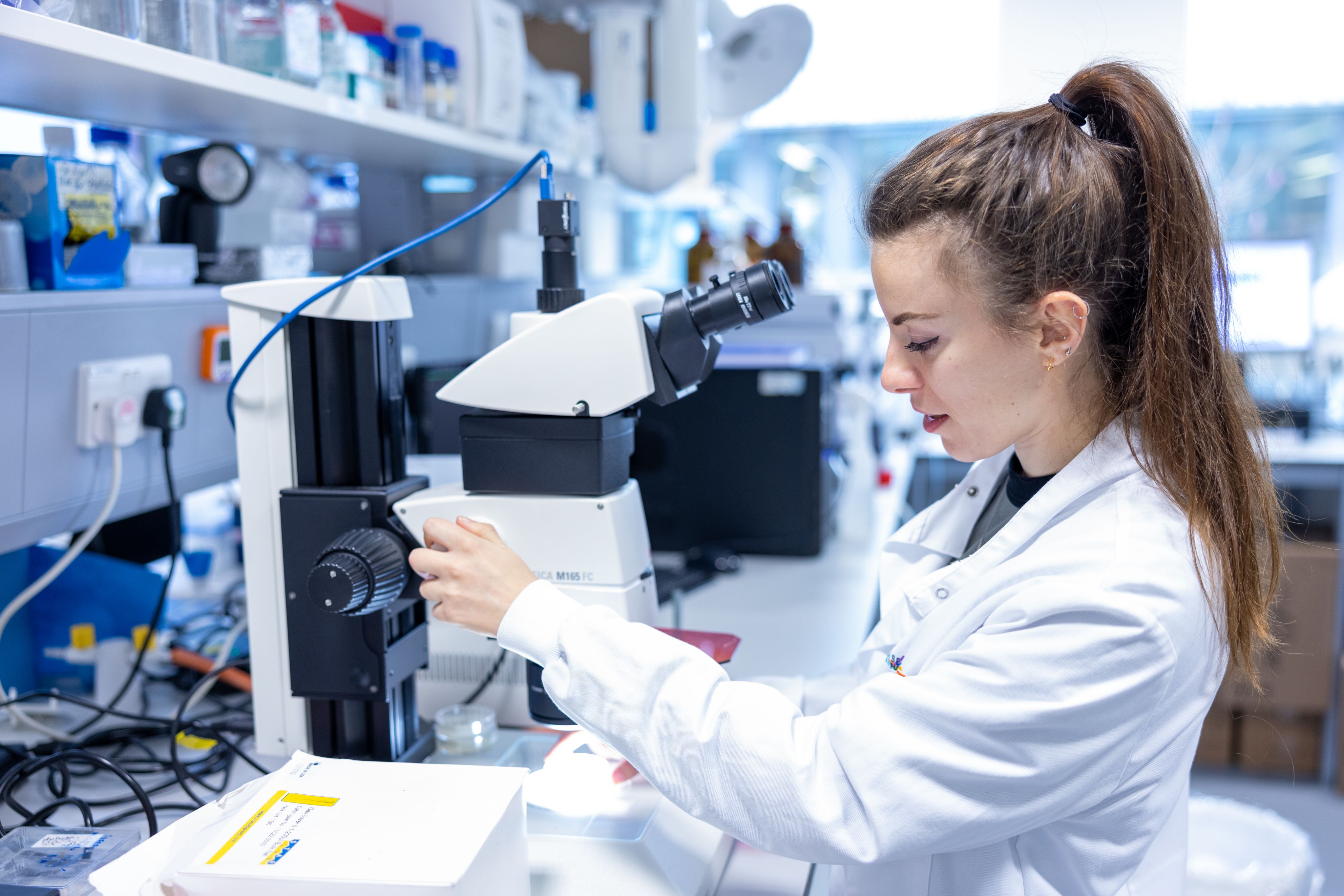

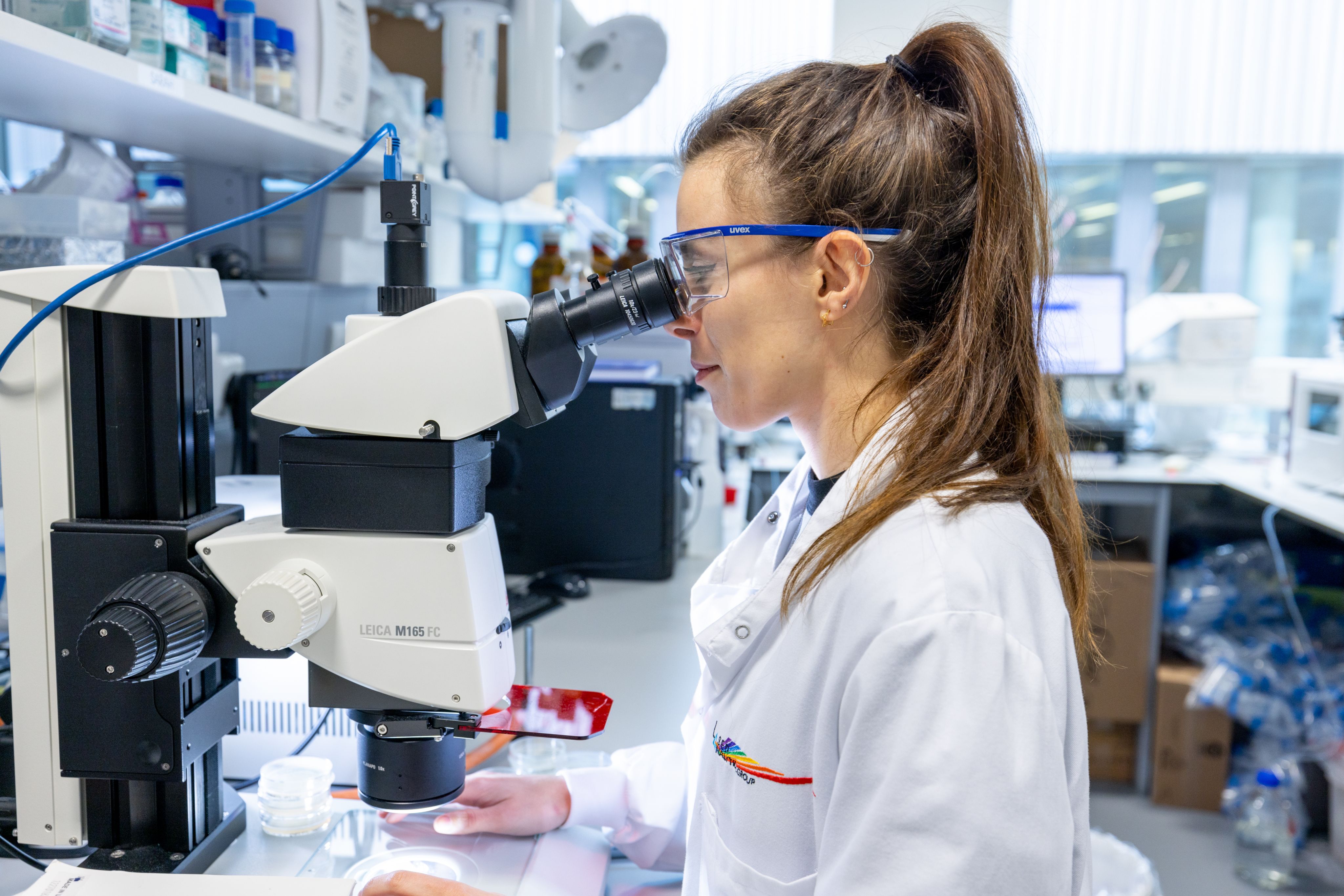
Take a moment to smile this February – and meet your Wellbeing Advocates
Take part in the Positive pics for February campaign
Life at CEB is full of small, joyful moments. But they often go unnoticed.
This February, we’re inviting you to pause and share those sparks of happiness that brighten your day with our Positive Pics for February campaign.
It is a simple way to reflect on those moments, whether it is celebrating achievements or connecting with others through shared glimpses of joy.
Maybe it’s the satisfaction of a project breakthrough or the warmth of a kind word from a colleague. Whatever it is, your story matters, and sharing it could brighten someone else’s day too.
Already have a picture in mind? Click here to submit it.
In launching this campaign, we’re also reintroducing our Wellbeing Advocates – Dr Jessica Fitzgibbon and Jon Cowper – who are here to help make wellbeing an everyday part of life at CEB.
Jessica, the Department Safety Officer who brings her thoughtful approach to fostering a positive and safe environment, said: "Modern life surrounds us with a lot of bad news, so much so that it's easy to overlook the good stuff. Positive Pics is a chance to celebrate and share all of the lovely, beautiful, exciting things, both big and small, going on in our community here at CEB."
Jon, who has been with the university for over 30 years in various roles, believes it is the people who make CEB so special: “After so many years here, I’ve learned that what makes this place special isn’t just the research or the work we do – it’s the people.
“Positive Pics gives us a way to share the stories and moments that make us human, and I hope everyone joins in.”
Taking part is easy. Send in your photos through our online form. Include a short note about what made your moment special. Each submission will help create a growing gallery of warmth and connection, with weekly highlights in the Bulletin.
Look out for Jessica and Jon if you want to learn more, share ideas, or just have a chat – they’re here to listen, and they’d love to hear from you.
* Wellbeing Advocates are there to provide guidance and signposting about wellbeing issues to all members of staff in CEB.
The University provides many different sources of support for staff and students. Please explore the Wellbeing website to find events, activities and initiatives to support your wellbeing.
Frank Morton Sports Day 2025
The Cambridge University Chemical Engineering Society (CUCES) is calling for students at CEB to join them in creating a team to compete at the Frank Morton Sports Day - on 10 February 2025.
Frank Morton is a day of fun, competition, and networking, which will be hosted at the University of Nottingham on 10 Feb 2025 (Monday). Chemical Engineering students from all over the UK and Ireland gather at Frank Morton to meet their future co-workers and network with potential employers, in a competitive sports setting.
The event consists of a Careers Fair involving some of the largest national Chemical Engineering employers, followed by a Sports Day where Cambridge chemical engineering students will get to compete against other chemical engineers from universities like Oxford, UCL, and Imperial. Events will include volleyball, basketball, table tennis, and badminton.
For more information please visit their Instagram for live updates and an updated schedule for the day.
If you are interested in attending, please get in touch with CUCES [email us] to secure tickets and join the team.
CEB, to our awareness, has not sent a team in a very long time - if ever - and we are keen for our first showing to be strong. Come and join the team, or find out how to support us.

Research news
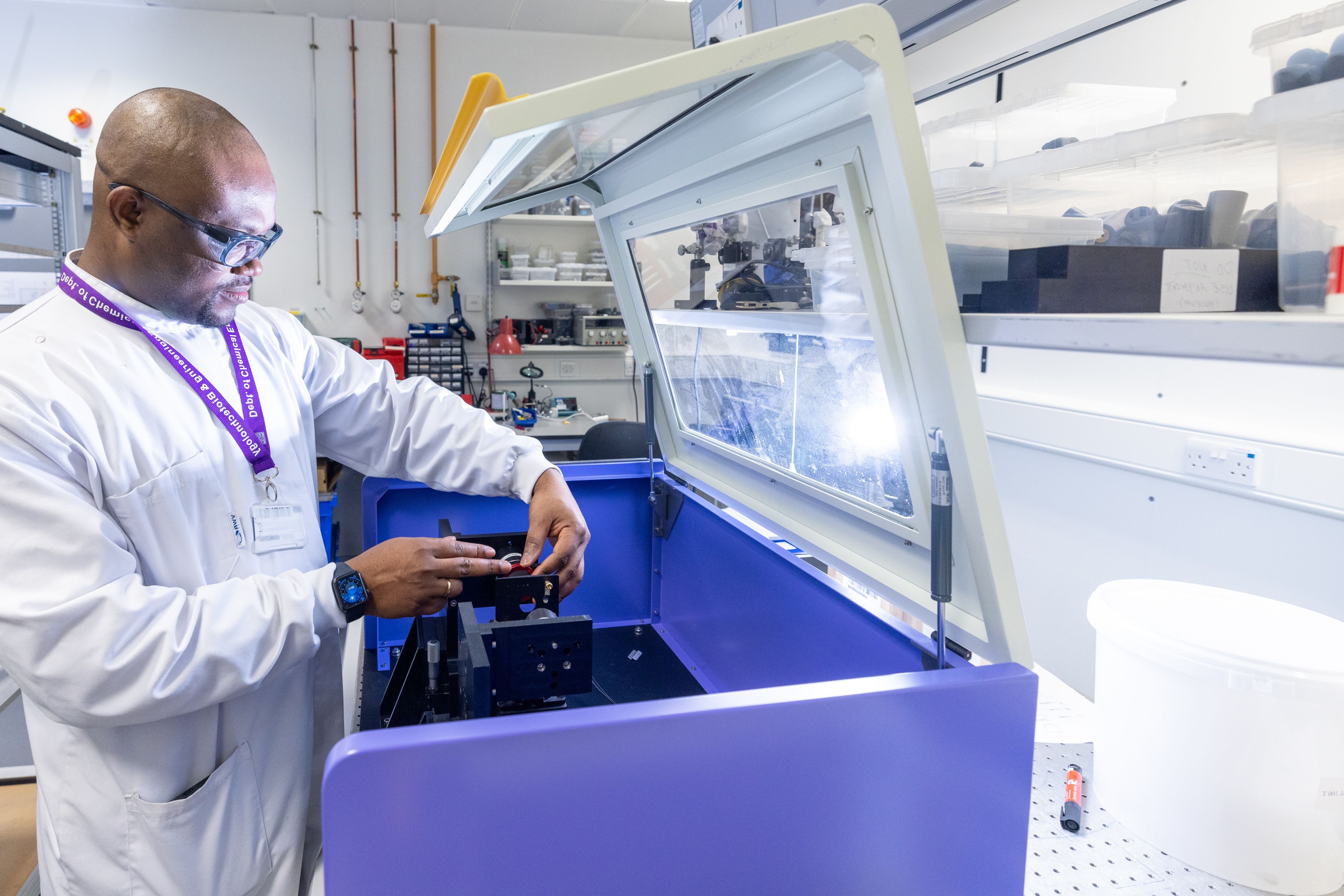
It may only be the first week of term following the Christmas break, but the research never stops at CEB, with two notable developments already announced.
The first takes glow-in-the-dark fun to a whole new level: imagine clothing that lights up every time you move, with no need for a power-source! Researchers at CEB, in collaboration with researchers from Hanyang University and Daegu Gyeongbuk Institute of Science and Technology (DGIST) in Korea, have created advanced mechanoluminescent materials that offer applications from healthcare sensors to glowing safety gear.
The second development comes from the BEST Group, which has secured a prestigious ERC Proof of Concept Grant to simplify Organ-on-Chip technology. The project aims to make drug testing on human-like tissues faster, safer, and more accessible, paving the way for sustainable, animal-free pharmaceutical research.

Photo by Sonika Agarwal on Unsplash
Photo by Sonika Agarwal on Unsplash
Brighter, stretchier, and ready to glow
New research shows how the triboelectric properties of elastic polymers influence mechanoluminescence, leading to improved brightness and durability in materials that emit light under stress – with potential applications from fashion to tech.

Photo by Louis Reed on Unsplash
Photo by Louis Reed on Unsplash
Project awarded proof of concept grant to develop safer, more effective medicines
Bioelectronic Systems Technology (BEST) Group, led by Roisin Owens, awarded ERC Proof of Concept grant to develop 'e-transmembrane' project.
Staff Spotlight: Jane Alder
Introducing dedicated grant support
Research Strategy Manager Jane discusses her role streamlining grant applications and boosting research impact

Jane Alder has taken on the pivotal role of Research Strategy Manager at CEB (Department of Chemical Engineering and Biotechnology), bringing a wealth of expertise and a passion for demystifying the funding process.
With 15 years of experience in supporting research grant funding applications at universities in the UK and Canada, Jane is helping academics to turn their research ambitions into reality. Her work focuses on ensuring that funding applications are not only compelling, but also strategically sound and impactful.
Describing herself as a ‘one-stop shop for all things grant related’, Jane’s role is both broad and deeply integrated into the research environment. She is collaborating closely with academics, lab managers, and administrative teams, ensuring every element of a grant application is meticulously planned – from costing and budgeting to communicating its long-term impact.
“A grant application isn’t just about the science and the request for funding – that is of course a vital aspect, but it’s also about creating a plan that includes mention of the wider impact, in legacy, outreach and clear communication to the public,” she explains.
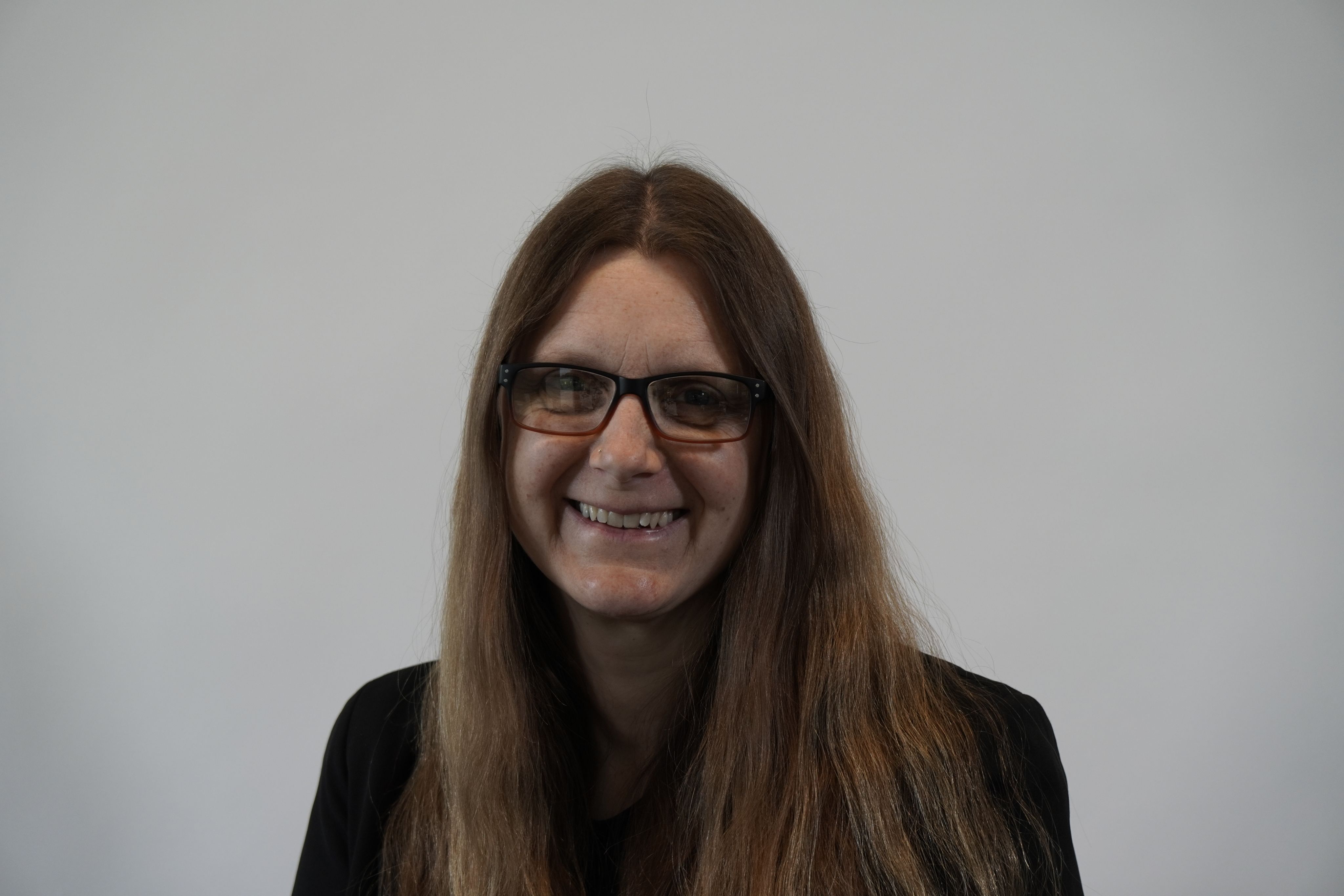
Open Access is just one of these wider elements that has become central to the university’s research strategy in recent years, driven by funding bodies that promote the philosophy that research should be accessible to everyone. Jane is working to ensure that all grant applications reflect this requirement, encouraging researchers to consider and develop a plan to make their findings freely accessible.
To manage growing demand for grant support, the team at CEB is expanding. Jess in the Accounts team is now also working on grant applications, helping ensure all aspects of the process are handled efficiently. The team is using the centralised email grants@ceb.cam.ac.uk to coordinate requests for assistance.
Worktribe, a grant management system implemented by the university last year, is one of the tools being used to simplify the application process and improve chances of success. By streamlining workflows and collaboration between researchers and administrators, it has been introduced to reduce complexity and ensure submissions are both efficient and effective.
Large-scale grants – those valued at approximately £5 million or more – are a particular focus for Jane, as they provide critical resources and significantly elevate the department’s profile. These successes create a cycle of growth, with increased visibility attracting further opportunities and funding. Jane emphasises the importance of these awards to the Department’s profile in the Research Excellence Framework (REF), a key benchmark for university rankings.
“Planning and preparation are essential, and there are many resources available at the university to support grant applications, such as the Research Relations Team, the Research Strategy Office,” she said. “The research data team in the library can also review data management plans, ensuring compliance with funder requirements.”
Jane’s career in research support started almost by accident when she moved to Canada early in her professional life and took a job supporting the Vice President for Research at a research intensive university. She discovered a fascination with the mechanics of knowledge creation and the political forces that shape what gets funded.
“It’s interesting to explore the factors that influence funding decisions,” she said, with this curiosity continuing to inform her work. Her dedication to understanding the shifting research landscape allows her to provide meaningful guidance to those navigating it.
With her combination of experience, insight, and a clear commitment to supporting academics, Jane is already an indispensable resource for researchers at CEB.
Staff and student news
Recent news from inside CEB is published on our intranet news and events pages and shared with staff and students via a weekly CEB Bulletin.
If you are not receiving this and would like to, please email a request to join the relevant mailing list: communications@ceb.cam.ac.uk
Please share any news, of personal academic successes and research papers with us. Send it all, we are curious creatures ourselves and whatever happens, we will enjoy reading and hearing about what you are up to. Our motto in comms is: Send it all, you cannot share too much about your work.
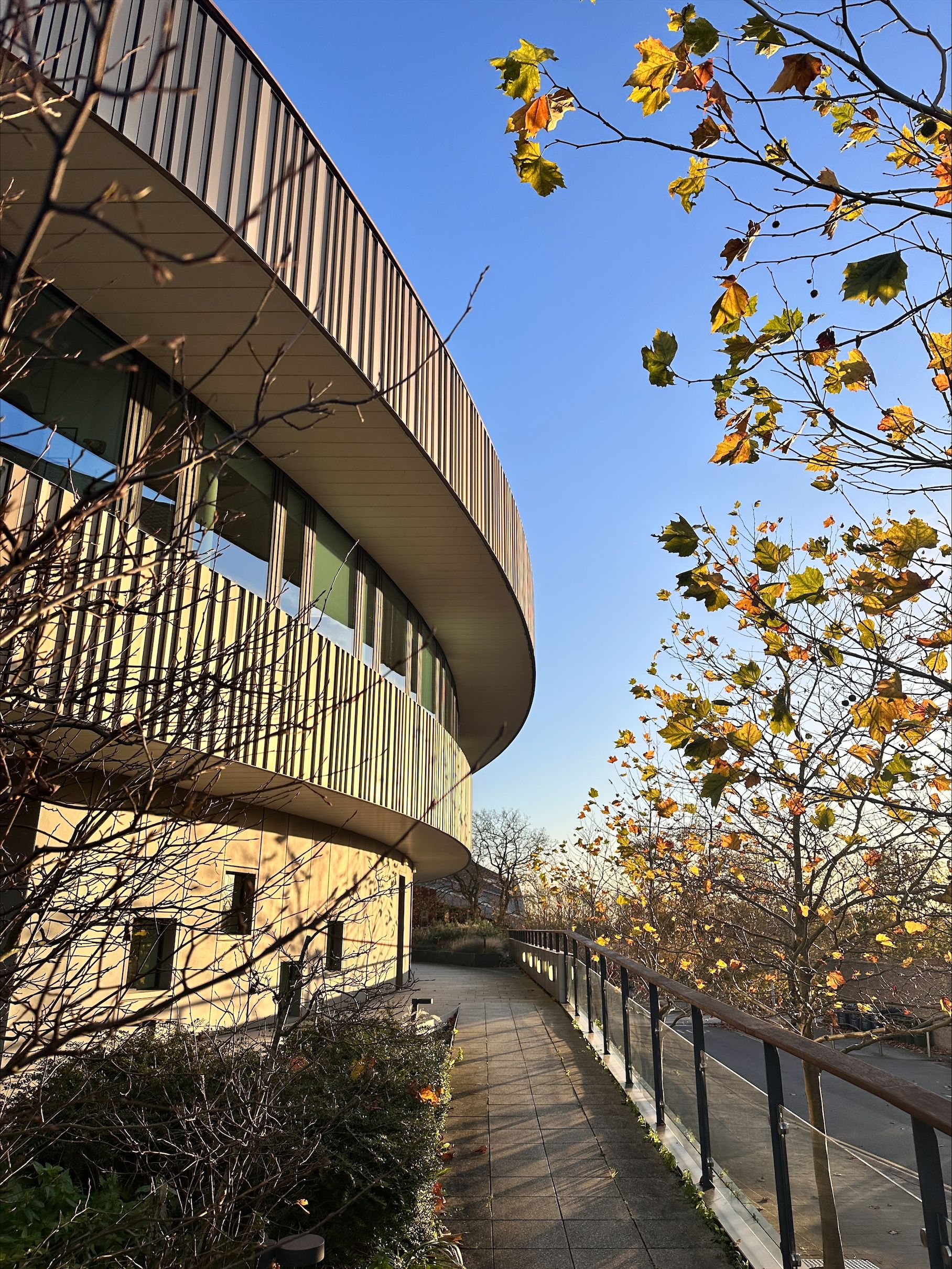
Capturing curiosity
Comms coordinator Alex Wilby shares his thoughts on our latest video series 'Curiosity in Action' as he works on the latest edition with Professor Ian Wilson

There is some insanely cool work going on under our roof from next-generation sustainability technology to healthcare research that could save lives; CEB is a place that can genuinely claim to have a global impact. It may seem like such a cliche to say something like that, but it really is inspiring when you look at all the cool science (trademark pending) going on in the department.
Creating content can be a grinding experience when inspiration is lacking but, at CEB, inspiration has not been hard to come by. A constant cascade of ‘wow that’s really cool, tell me more’ is what drives us in the work we do.
Natural curiosity about the department’s research is part of what drove us to create our video series ‘Curiosity in Action’. You may have come across these videos on the TV screen near reception or across our social media channels and it is a project that I really feel matches both the approach of the department (driven by curiosity, driving change) and my own interest in the amazing research within our walls.
These short pieces are designed to highlight a single academic or researcher, the work they do at CEB, and the impact of that work on the wider world. I think it is this last point that’s the most important in this campaign.
Sneak preview: Professor Ian Wilson will star in our next edition in the Curiosity in Action series
Sneak preview: Professor Ian Wilson will star in our next edition in the Curiosity in Action series
To engage and excite people outside of the bubble of academia we focus on how the cutting-edge research done in the department will impact the lives of people all over the world. This is what we set out to do with every ‘Curiosity in Action’ and, we hope, it will help to show them why the work being done here is so vital to our shared future.
It’s worked out pretty well for us so far. The videos we’ve produced to date have risen to become some of the most-viewed video content across our social media channels. Each has racked up hundreds of views within a few weeks, which is a strong showing relative to the size of our social media following.
By way of comparison, our friends and colleagues across in Physics have twice as many followers as we do on Instagram, but our videos garner similar viewing figures to theirs. So we’re already punching above our weight, but we think our voice can be even louder still!
At time of writing, we’ve made five of these features (though I am knee-deep in editing the sixth) covering a broad spectrum of research conducted at CEB. We’ve covered DNA nanotechnology, understanding and combating rotaviruses, developing the next generation of solar panels and more! We’re just getting started. There are still so many fascinating topics we haven’t covered and so many interesting areas of research we haven’t yet explored.
Spotlight: Alumni Aiden's story
Alumni Aiden Goulden discusses his life and career post-university and his goal to champion environmental innovation in industry
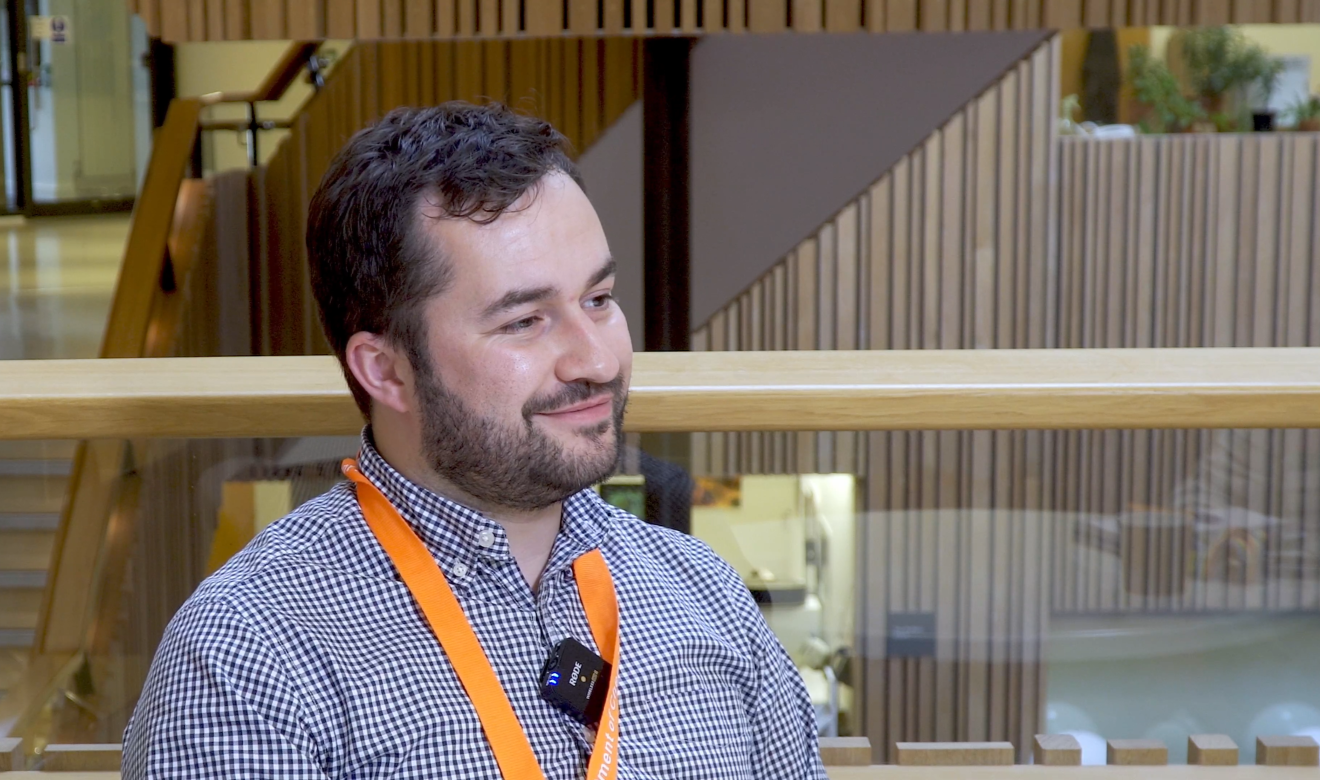
In this alumni spotlight, we explore the journey of Aiden Goulden (MEng Chemical Engineering, matriculation 2012), a forward-thinking chemical engineer making strides in sustainability through his work with Herrington Process Solutions. Aiden’s journey from a bright-eyed student at Jesus College to the founder of his own consultancy is a testament to the power of passion, problem-solving, and the far-reaching impact chemical engineers have on the world.
Aiden, originally from Sunderland but now a long-time resident of Leeds, reflects fondly on his time at the Department of Chemical Engineering and Biotechnology. However, his path to chemical engineering wasn’t as straightforward as some. While he always had an interest in engineering, it was only through his Maths teacher and a transformative experience at the Sutton Trust Summer School – an initiative aimed at providing students from state schools and disadvantaged backgrounds with the opportunity to apply to Cambridge – that he discovered chemical engineering as a career.
"I knew I was interested in engineering at school, so I pursued A-levels in Maths, Physics, and Chemistry," Aiden says. "But I didn’t know about chemical engineering until my Maths teacher told me about it. I did some research and then attended the Sutton Trust Summer School, which solidified my decision to apply."
Aiden’s background highlights the importance of exposure to different fields, particularly in areas like chemical engineering that were not always as widely recognised outside certain industries. "Where I lived at the time, chemical engineering wasn’t something people often spoke about. But when I learned more, I was immediately drawn to it," he explains. "Chemical engineering is a blend of science and problem-solving that has so many applications – from energy to food and beyond."
One of the aspects Aiden loves most about chemical engineering is the balance between tackling technical challenges and engaging with people. "We’re often at the forefront of multidisciplinary work," Aiden shares. "Whether it’s solving a design flaw, managing a team, or finding a solution to a technical issue, it’s about understanding both the science and the people involved. It’s incredibly satisfying to be part of a project and know you’ve contributed to its success."
Aiden (third from left) during his undergraduate days at the University of Cambridge
Aiden (third from left) during his undergraduate days at the University of Cambridge
This combination of technical expertise and human insight has made Aiden a key player in the sustainability sector.
Aiden added: "I’ve been fortunate to work on large projects aimed at reducing CO2 emissions, such as one where I helped a company cut their emissions by 25%, equivalent to 14,000 tonnes of CO2. These kinds of projects make you realise just how important the work we do as chemical engineers is, especially when it comes to the environment."
Indeed, the field of chemical engineering is evolving rapidly, with increasing demand for professionals who can solve environmental and sustainability challenges. "I’ve seen more and more companies recruiting chemical engineers for environmental roles," Aiden notes. "This field is really coming into its own in a modern world and has a vital role to play in addressing the world’s major challenges."
After gaining invaluable experience working with several companies, Aiden took a bold step and founded Herrington Consulting, where he applies his problem-solving skills to a variety of challenges across industries, particularly in sustainability and efficiency. "I realised one of my strengths is finding solutions to complex problems, from regulatory issues to technical challenges. It was a scary decision to go out on my own, but it’s been worth it so far."
While the journey of running his own consultancy is still in its early stages, Aiden has big ambitions. "I want to grow Herrington Consulting and take on staff or partners. There’s a real need for the skills I can offer, particularly in making businesses more sustainable and efficient."
As Aiden continues to build his consultancy and work on impactful projects, he remains grounded in the values instilled during his time at our department.
"Chemical engineering is about understanding the limits of your own knowledge and knowing when to ask for help. Admitting you don’t know something can actually be a strength, especially when it comes to safety."
Aiden’s story is a remarkable example of how a chemical engineering education can lead to a career that not only solves technical problems but also makes a meaningful impact on the planet. We’re proud to call him one of our own and look forward to seeing the great strides he will continue to make in the years ahead.
CEB Newsletter
This email was sent to you because of your affiliation with the Department of Chemical Engineering and Biotechnology (CEB).
Images credited to: Martin Bond
© 2025 Department of Chemical Engineering and Biotechnology, University of Cambridge
Communications Team | Philippa Fawcett Drive | Cambridge, CB3 AS | UK













